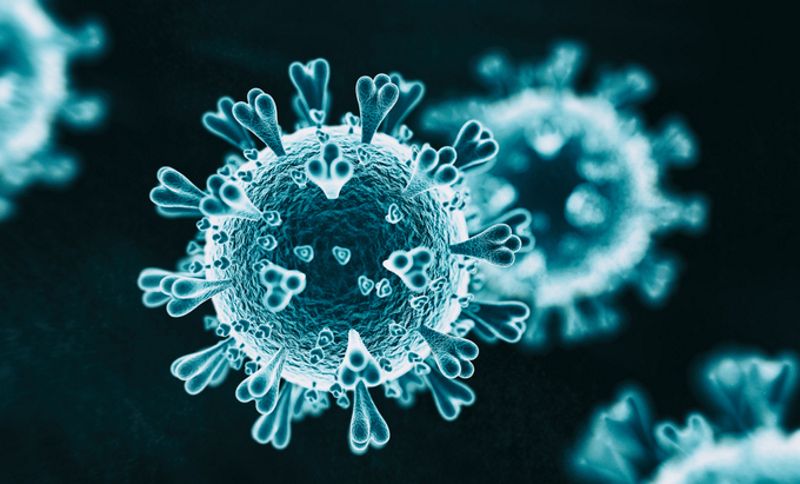A Long-Standing COVID-19 Infection Has Been Linked To An Increased Risk Of ‘Facial Blindness,’ According To A New Study.
The research team also collected self-reported data from 32 people who reported having recovered from COVID-19 and 54 people who had protracted COVID with symptoms lasting at least 12 weeks. The majority of respondents with extended COVID stated that COVID harmed their cognitive and perceptual abilities.

Research suggests that persistent COVID-19 symptoms may be accompanied by difficulties recognizing faces, a condition is known as face blindness and navigational issues. Past research has demonstrated that COVID-19 can result in a variety of neurological issues, including loss of taste and smell as well as “brain fog,” or difficulties with concentration, memory, speech, and language.
The most recent study, which was published in the journal Cortex, is the first to document prosopagnosia, or facing blindness, after COVID-19-like symptoms.
It has been estimated that between 2 and 2.5% of individuals worldwide suffer from an illness that might render people unable to recognize familiar faces. The example of Annie, a 28-year-old American customer service agent, and part-time portrait artist who was given a COVID-19 diagnosis in March 2020 and experienced a symptom recurrence two months later, was examined by the researchers.
According to Marie-Luise Kieseler, a Ph.D. student at Dartmouth College in the US, “When I first met Annie, she informed me that she was unable to recognize the faces of her family.” Kieseler added that Annie now relies on voices to recognize individuals. Following COVID-19, Annie also had difficulties navigating. She has trouble remembering where specific areas of her grocery store are, so she uses Google Maps and its pinning feature to keep track of where she parks her car.
“The combination of prosopagnosia and navigational difficulties that Annie had piqued our interest since the two abnormalities frequently go hand in hand when somebody has suffered brain trauma or developmental problems,” said research senior author Brad Duchaine, a Dartmouth professor. “Such co-occurrence is presumably owing to the two talents relying on neighboring temporal lobe brain areas,” Duchaine said in a statement.
Long-term COVID may induce facial blindness, but the precise processes by which this may happen are not yet completely known, according to Dr. Vinit Suri, Senior Consultant, Neurology, Indraprastha Apollo Hospitals, and New Delhi. Nonetheless, there are several plausible hypotheses.
First, prolonged COVID can result in a variety of neurological symptoms, some of which may damage the areas of the brain involved in face recognition, making it harder to interpret visual information and recognize familiar faces. Second, COVID-19 can promote blood vessel inflammation and destruction, resulting in decreased blood flow to the brain. This can result in brain damage and cognitive problems, such as facial blindness.
The study team administered a battery of tests to Annie to assess her challenges with facial recognition and establish whether she also struggles with other perceptual or cognitive abilities. Annie was shown 60 photographs of celebrity faces and asked to name them in one test. Annie accurately recognized 29% of the 48 celebrities she was familiar with, whereas the average person can properly identify 84% of familiar celebrities.
The second exam was a doppelganger test. Annie was told the name of a celebrity and then shown photographs of two faces: one of the celebrity and one of someone similar, and she was asked to determine which face belonged to the famous person. She correctly recognized the celebrity in 69% of the 58 trials, compared to 87% in the control group. Our findings from the test with unknown faces reveal that Annie not only struggles to recall the name or biographical details of a famous person with whom she is familiar, but she also struggles to learn new identities.
The research team also collected self-reported data from 32 people who reported having recovered from COVID-19 and 54 people who had protracted COVID with symptoms lasting at least 12 weeks. The majority of respondents with extended COVID stated that COVID harmed their cognitive and perceptual abilities. It wasn’t simply a tiny percentage of severely affected patients; a large majority of those in the extended COVID group reported having notable issues performing tasks that they had no trouble performing before getting COVID-19.
Receiving the COVID vaccination, according to a recent study including over 860,000 people, decreases a person’s chances of having long-term COVID by half. Those who are overweight, smokers, or over the age of 40 are at a higher risk of having long-term COVID, according to the research. Moreover, people who have asthma, COPD, type 2 diabetes, coronary heart disease, presupposition, anxiety, and depression are at a higher risk of having long-term COPD.
People should be aware of the COVID-19-related perceptual issues with face recognition and navigation, notably doctors and other healthcare professionals, according to Duchaine’s study, which exposes these issues. This is the first instance of a lengthy COVID episode producing prosopagnosia, according to Dr. Atul Prasad, Principal Director and Head of Neurology at BLK-Max Super Speciality Hospital, New Delhi. As we learn more about the virus, we become more aware of the harm it may do both during acute illness and after the infection has subsided.
The intensity and length of symptoms might differ greatly, according to Suri, and not everyone with chronic COVID will get facial blindness. To provide efficient therapies and interventions for people afflicted, more study is required to better understand the connection between extended COVID and facial blindness, the researcher continued.
According to research conducted in the United States, vaccination reduces the risk of long-term COVID.
Moreover, people who are hospitalized while suffering from an acute COVID infection are more likely to have a protracted COVID. In contrast, it was comforting to observe that those who had received the vaccine had a much lower risk—nearly half the risk of acquiring long-term COVID. The results, which were reported in the journal JAMA Internal Medicine, were based on information from 41 international studies that included a total of 860,783 individuals.
When symptoms last for more than 12 weeks, long-term COVID is considered a complicated illness that develops during or after receiving COVID,” “explained Vassiliou. People are affected differently by long COVID. Among the most common symptoms are breathlessness, a cough, heart palpitations, headaches, and extreme exhaustion.
Chest discomfort or tightness, brain fog, sleeplessness, dizziness, joint pain, depression and anxiety, tinnitus, a lack of appetite, headaches, and alterations to the sense of smell or taste are other symptoms that may be present,” Vassiliou stated. The study will contribute to the definition of the entire demographic profile and the risk factors for long-term COVID.
edited and proofread by nikita sharma




